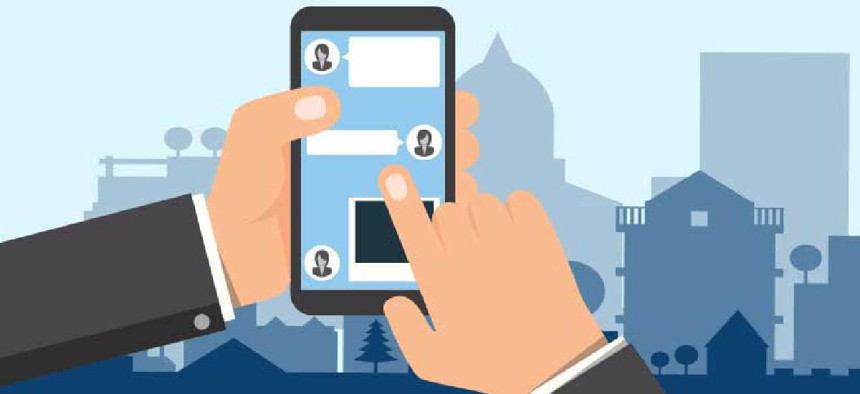Cities collaborate to solve COVID-19 challenges


Connecting state and local government leaders
A free instant messenger network called UrbanLeague lets city managers and CIOs connect on specific issues related to coronavirus response.
A free instant messenger network called UrbanLeague lets city managers and CIOs connect on coronavirus response.
Set up in mid-March by UrbanLeap, a three-year-old startup, the network has two tracks: one for city managers that focuses on policy, and one for technology and innovation leaders addressing tactical issues. Moderators maintain engagement and encourage conversation, kicking off each morning with a new topic of discussion, such as telework and cybersecurity.
“We know that there are a lot of resources out there: [The International City/County Management Association], [the Centers for Disease Control and Prevention] and everyone is doing an amazing job sharing resources, guidelines, but it’s hard for the cities just to find the right resources for the problems,” said Jeremy Devray-Benichou, vice president of customer success at UrbanLeap. “Most of the time, those guidelines are very generic, and cities have very specific problems of their own.”
As of April 14, UrbanLeague had 203 members representing 200 cities and counties across 37 states. It also has international users in Canada, Brazil, Iceland, Israel, the U.K., Germany, Hungary and Turkey.
Users can leave the chat open and check it at random. If someone pings another user directly, the recipients gets an email notification with a link to the inquiry. All community members receive daily and weekly digests summarizing topics covered and resources shared.
For example, a recent weekly digest included links to the King County, Wash., guide for businesses and organizations; Fairfax, Va.’s Limited Access Action Plan; and Kansas City, Mo.’s Emergency Telecommuting Program Policy.
The platform allows users to upload and download resources, such as PDF and video files, in addition to URLs. Meanwhile, UrbanLeap also posts information from its data scientists who mine and scrape the internet for relevant information, Devray-Benichou said.
Debra Socia, president and CEO of The Enterprise Center, a nonprofit in Chattanooga, Tenn., that works to bring technological innovation and digital equality to the city, joined UrbanLeague as the COVID-19 pandemic began.
“I was looking to see how cities and their collaborating organizations are managing the new and unique challenges,” Socia wrote in an email to GCN, adding that she checks the platform at least once a day. “I shared information about our WiFi Hotspot Locator. I also asked how other cities are working on providing internet access and devices to impact the digital divide. I appreciated the responses and the opportunity to hear about what other communities are doing.”
Without the network, Socia said that she would have had to individually contact folks who might have the information she sought -- “a harder and less efficient method that does not allow for collaboration and a shared set of resources.”
Moderators who monitor the chats include Jonathan Reichental and James Keene, former CIO and former city manager, respectively, of Palo Alto, Calif., along with UrbanLeap’s head of data science, a former chief data officer for the city of San Diego.
Devray-Benichou said the company plans to bring in subject-matter experts to moderate each channel when a specific topic is on the table.
To ensure that they’re getting the right people into the chats, UrbanLeap checks those who sign up through a landing page (one for innovators and one for managers) against its database of contacts to ensure that participants are really city and innovation leaders, as opposed to vendors or someone who’s just curious.
The database is the result of UrbanLeap’s “day job,” which is connecting cities, counties and vendors so they can learn about each another’s technology and run pilot tests without having to commit to procurements. More than 60 cities and counties and more than 1,000 vendors are on that platform, where about 250 pilots are being conducted and managed.
During the pandemic, however, government officials have become less interested in conducting tests and working with vendors, Devray-Benichou said. Instead, they needed a way to communicate, which led him to create UrbanLeague.
“If we want to measure the success of that, it’s really by seeing the questions that are asked and then just seeing people answering questions,” he said.
NEXT STORY: How Virginia Juked Its COVID-19 Statistics




